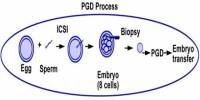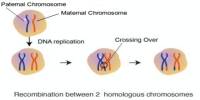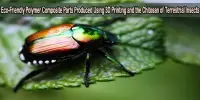According to new research, immune systems create particular genes to fight off common bacteria like those present in food.
Antimicrobial peptides, a class of natural antibiotics, have been theorized in the past to play a broad function in the death of a variety of bacteria.
The latest study, however, looked at how bacteria in fruit flies’ environments and diets affect their immune systems and was published in Science. It is titled “Ecology-relevant bacteria drive the evolution of host antimicrobial peptides in Drosophila.”
The researchers, from the Swiss Federal Institute of Technology and the University of Exeter, found two peptides that each control a single bacterial species commonly encountered by the flies.
“We know that an animal’s food and environment determine the bacteria it encounters,” said Dr. Mark Hanson, from the Center for Ecology and Conservation on Exeter’s Penryn Campus in Cornwall.
“This in turn shapes its ‘microbiome’ the collection of microbes that live in and on its body and our study shows how immune systems evolve in response to this, to control common bacteria that could otherwise cause harm.”
“In immune terms, it proves the saying ‘you are what you eat’ the flies immune systems contain peptides with remarkably specific functions for controlling common bacteria.”
I hope it gets us to ask why our immune system is made the way it is. That can help us fight infections, including infections that resist antibiotics. Studies like this produce fundamental observations about life, and in turn these can have crucial applications in the world around us.
Dr. Mark Hanson
One such bacterium Acetobacter, found in the fruits that flies eat (and in fruits humans eat) can harm flies if it escapes the gut and reaches the bloodstream.
But the study shows various fly species have a specific peptide (Diptericin B) to control Acetobacter.
“This peptide is the silver bullet that kills this specific bacterium,” Dr. Hanson explained. “Without it, flies are extremely vulnerable because Acetobacter is so common in rotten fruit.”
The study also identifies instances of “convergent evolution” when diverse species develop analogous responses to environmental obstacles.
Although the study’s fly species separated from a single ancestor around 100 million years ago, they both developed the Diptericin B peptide to regulate Acetobacter.
Meanwhile, because Acetobacter is no longer prevalent in their environment, closely related fly species that do not consume fruit have gradually lost their Diptericin B peptides.
According to Dr. Hanson, this evolutionary process may aid in explaining why humans are susceptible to specific illnesses.
“The way our bodies fight infections is really complex. But this sort of research helps us to view our immune system in a new light,” he said.
“I hope it gets us to ask why our immune system is made the way it is. That can help us fight infections, including infections that resist antibiotics.”
“Studies like this produce fundamental observations about life, and in turn these can have crucial applications in the world around us.”
















